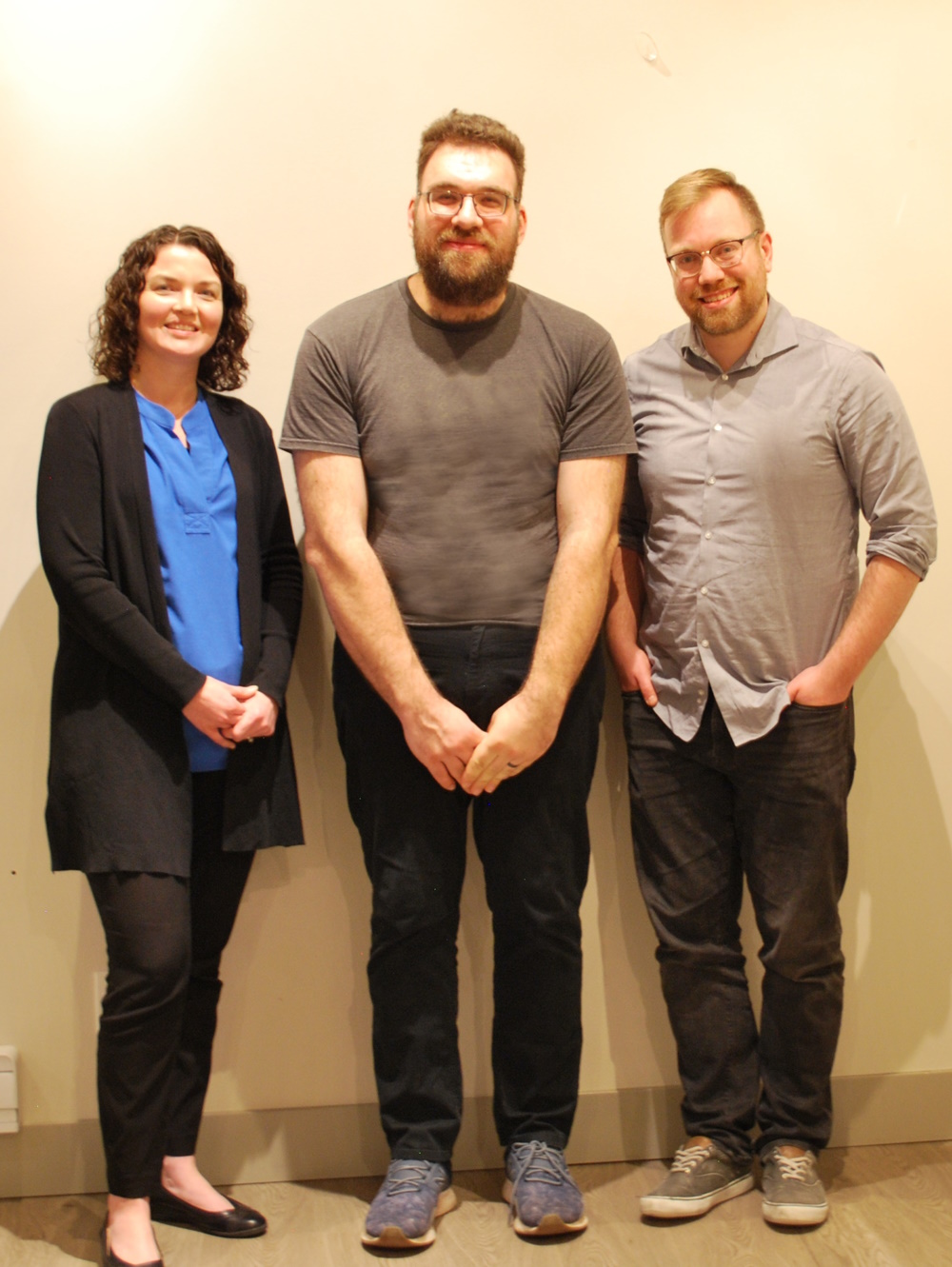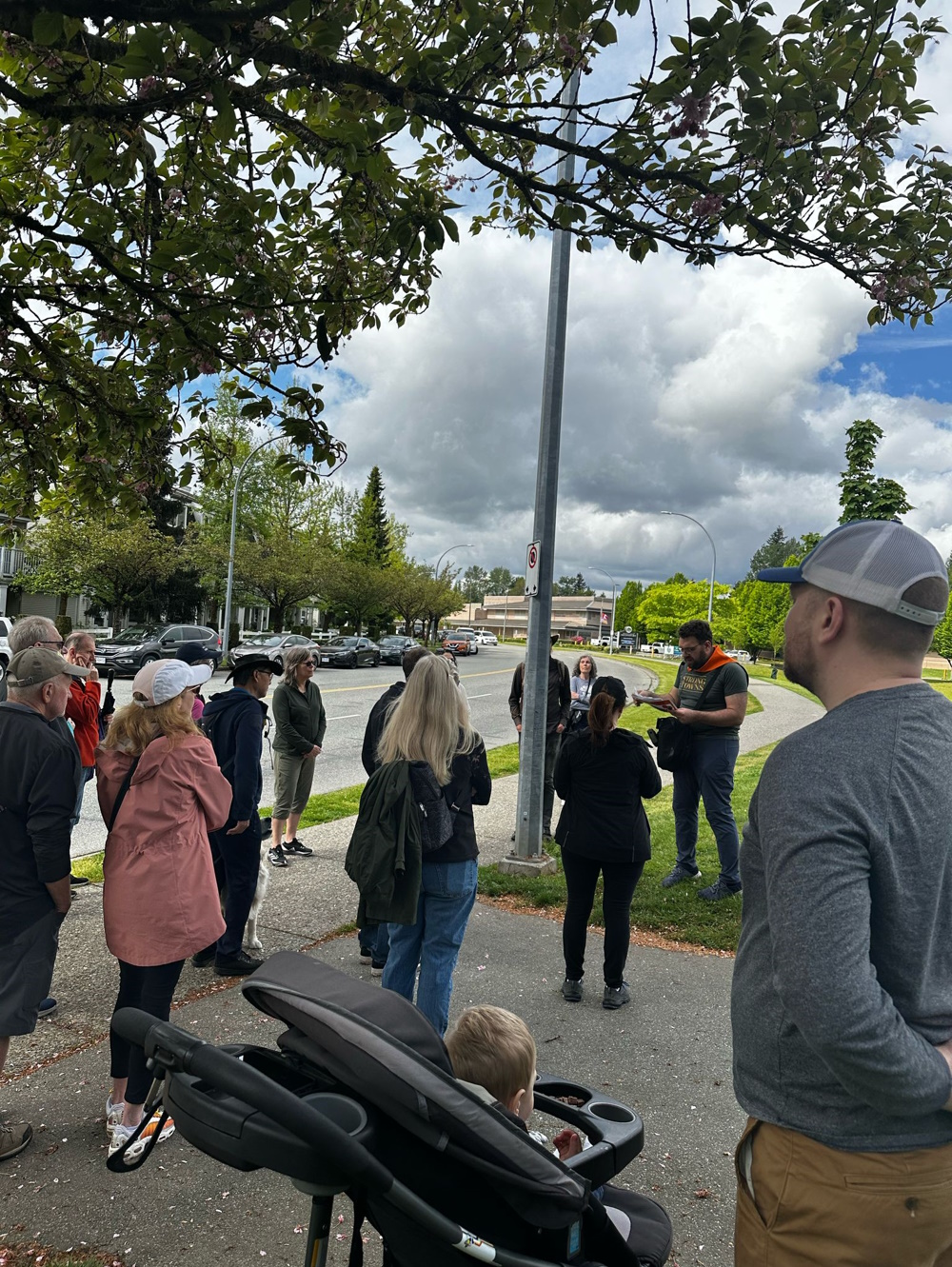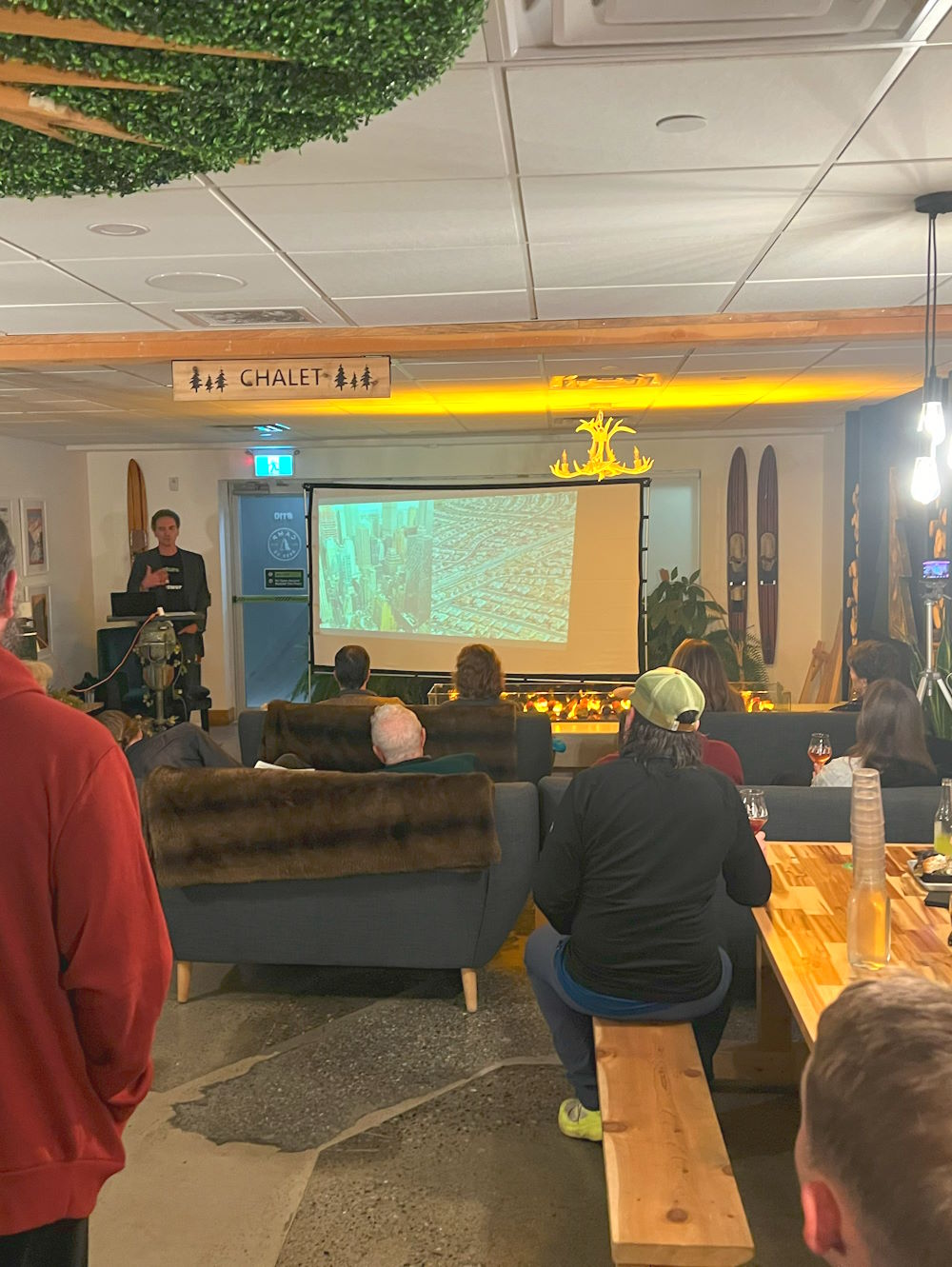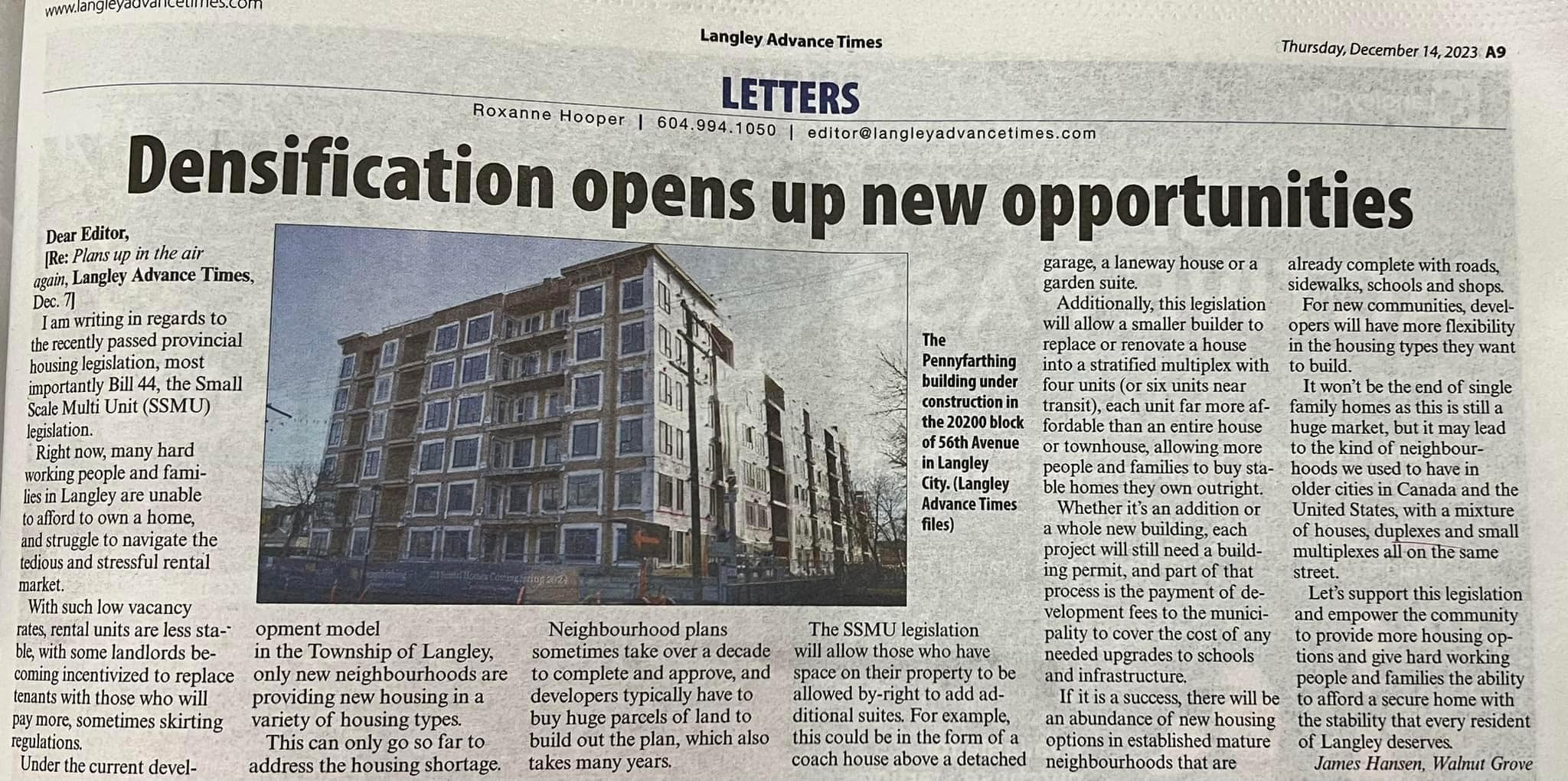Campaign Overview
Strong Towns Langley advocates for housing policies that enable incremental development and diverse housing options throughout our community. We believe that the current housing crisis stems from decades of restrictive zoning that has prevented the organic growth patterns that built resilient communities in the past.
Our approach focuses on enabling "missing middle housing" - the diverse range of housing types between single-family homes and high-rise towers that historically formed the backbone of walkable neighbourhoods. This includes duplexes, triplexes, courtyard buildings, and small apartment buildings.
We support community-based planning processes that involve residents and local builders in creating neighbourhoods that evolve organically to meet local needs, rather than being imposed through mega-developments. Our Strong Brookswood whitepaper demonstrates how these principles can be applied to real development challenges in South Langley.

Missing Middle Housing: The range of housing types that enable gentle density while maintaining neighbourhood character.
Part of a National Movement
Strong Towns Langley is proud to be part of More Homes Canada, a national coalition advocating for policy reforms that enable more homes to be built in communities across the country.
Our Published Advocacy
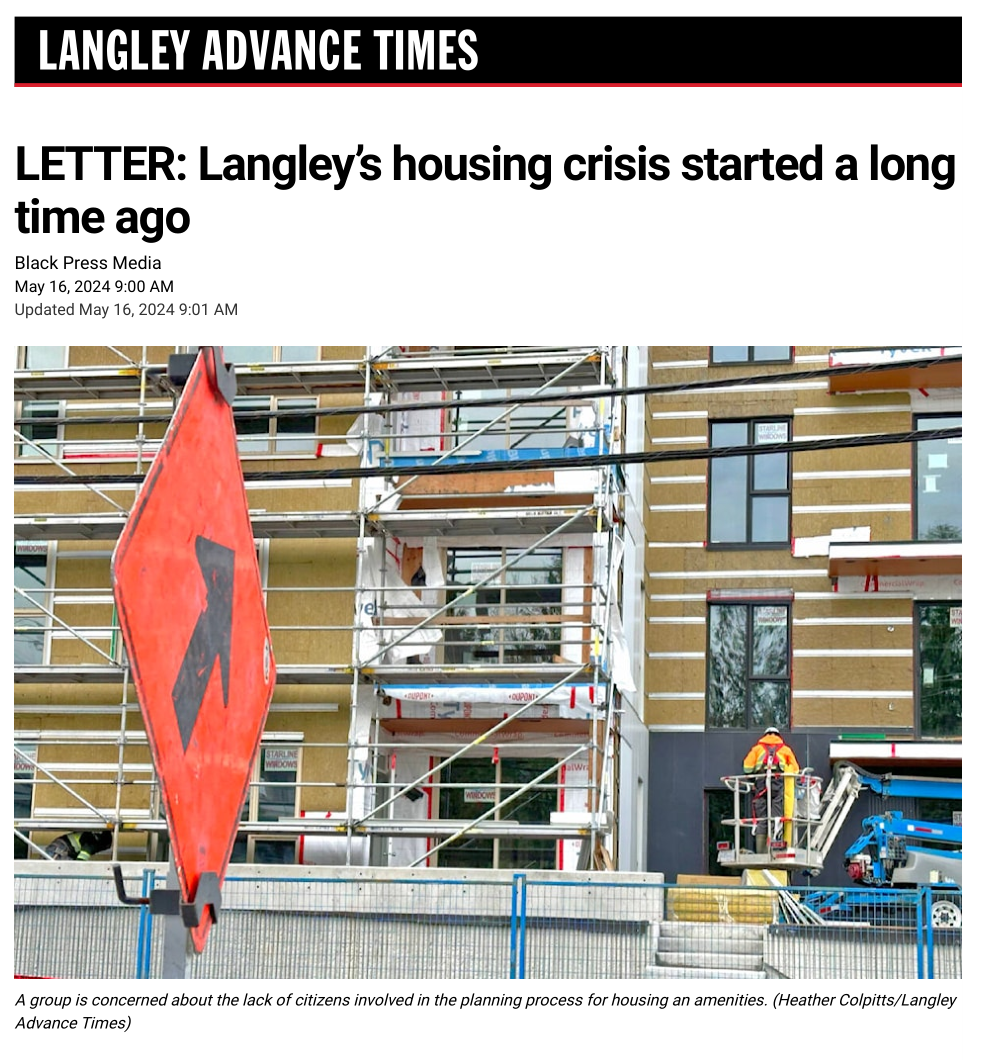
Langley's Housing Crisis Started a Long Time Ago
May 16, 2024 - Langley Advance Times
Our comprehensive response explaining how restrictive zoning has created a "pressure cooker" for housing demand, leading to mega-towers instead of incremental, community-scaled development.
Housing Advocacy Timeline
Provincial SSMUH Legislation
BC introduces Small-Scale Multi Unit Housing legislation requiring municipalities to allow up to 4 units on single-family lots. Strong Towns Langley publishes letter supporting these reforms.
SSMUH Letter Published
"Densification Opens Up New Opportunities" letter published in Langley Advance Times, explaining the benefits of diverse housing options.
Incremental Development Letter & Strong Brookswood Demonstration
Comprehensive letter "Langley's Housing Crisis Started a Long Time Ago" published, outlining how restrictive zoning created current housing challenges. Strong Brookswood demonstration plan released in response to Township feedback request, proposing radical housing solutions that address root causes of the crisis.
More Homes Canada Partnership
Strong Towns Langley joins More Homes Canada coalition, connecting local advocacy with national housing reform movement.
Continued Advocacy
Ongoing advocacy for zoning reform, community-based planning processes, and policies that enable incremental development.
What We Support
- Missing Middle Housing: Duplexes, triplexes, courtyard buildings, and small apartments
- Incremental Development: Organic growth that responds to community needs
- Flexible Zoning: Removing barriers to diverse housing types
- Community-Based Planning: Involving residents in neighbourhood design
- Affordable Options: Enabling smaller, more affordable units
- Transit-Oriented Development: Housing near transportation options
Problems We Address
- Restrictive Zoning: Single-family-only restrictions limiting housing diversity
- Mega-Development Dependency: Reliance on large developers for all new housing
- Housing Unaffordability: Limited options driving up costs
- Car-Dependent Design: Sprawling patterns requiring vehicle ownership
- Lack of Community Input: Top-down planning without resident involvement
- Infrastructure Inefficiency: Sprawl creating high municipal costs
Community-Based Planning: The East Clayton Model
A Successful Example of Community Engagement
The East Clayton neighbourhood in Surrey demonstrates how community-based planning can create successful, sustainable neighbourhoods. This project used a charrette process that brought together residents, planners, architects, and other stakeholders to collaboratively design a new community.
Key features of the East Clayton process included:
- Intensive community workshops and design sessions
- Integration of environmental sustainability with neighbourhood design
- Focus on walkability and community connectivity
- Diverse housing types within a cohesive neighbourhood framework
- Long-term community stewardship and involvement
This model shows how communities can actively participate in creating neighbourhoods that reflect their values and needs, rather than having development imposed upon them.

Learn More
Explore the East Clayton case study to understand how community-based planning creates better neighbourhoods.
Read Case StudyStrong Brookswood: Radical Ideas for the Housing Crisis
A Demonstration Plan for South Langley's Future
Our Strong Brookswood whitepaper was created in response to the Township's request for feedback on Brookswood development plans. Rather than incremental tweaks, we proposed radical ideas that could actually address the housing issues that got us into this mess.
The key insight: walkability and local retail make Brookswood a more complete community, which naturally invites more diverse housing types. When people can walk to amenities and services - when all the nice stuff is right there - they're willing to sacrifice space for location.
This means smaller housing units become desirable, diverse demographics are attracted, and the community naturally supports a range of housing types from small apartments to family homes. Instead of fighting over where to put housing, we create communities so desirable that people choose smaller, more diverse housing types to live there.
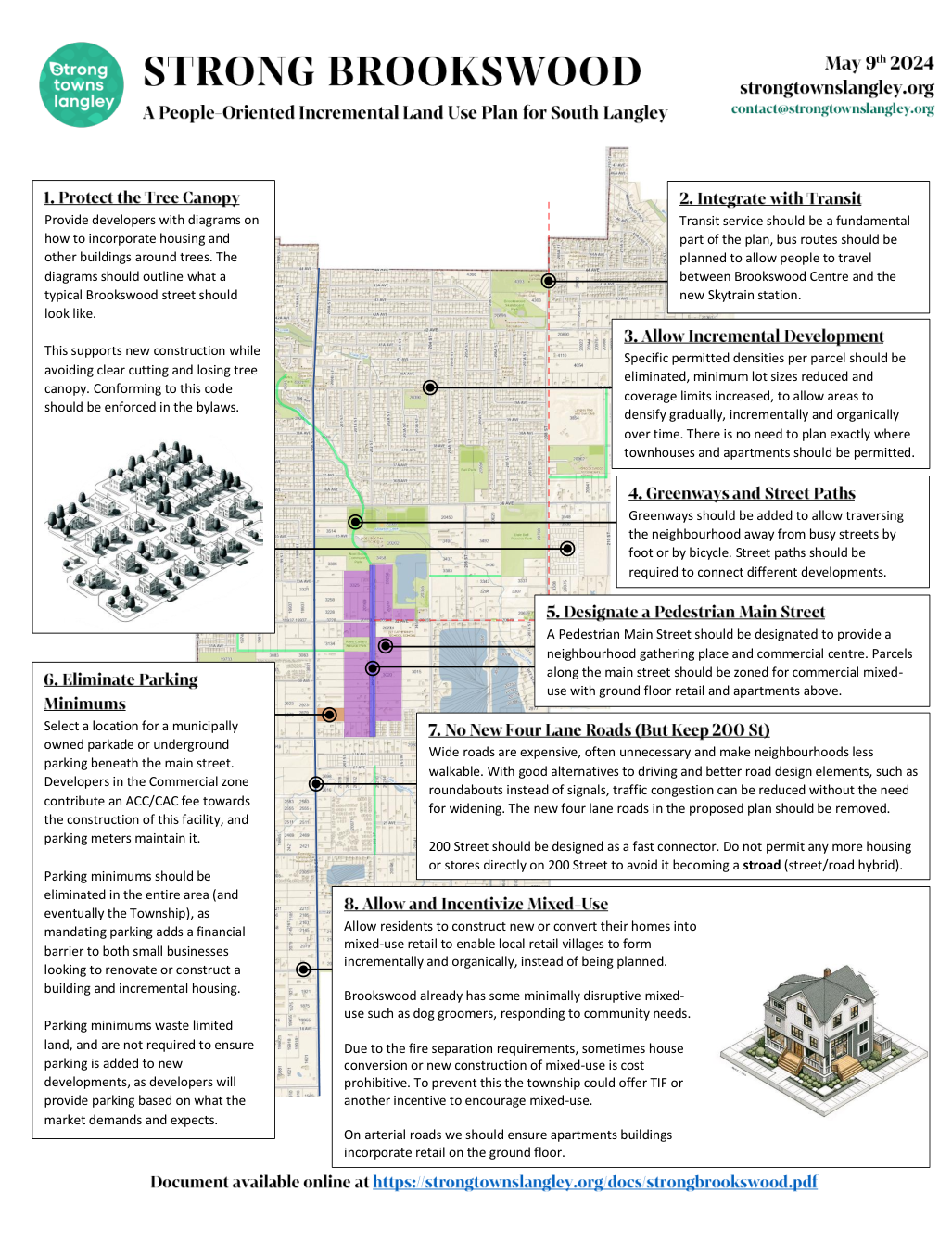
Read the Demonstration
See how bold housing solutions can address the root causes of our housing crisis.
Download Whitepaper (PDF)Current Housing Challenges in Langley
The Zoning Straightjacket
Current zoning in much of Langley restricts development to single-family homes only, preventing the incremental development that historically built our most beloved neighbourhoods. This creates several problems:
- Limited housing choice forcing people into expensive single-family homes
- Inability for families to age in place with appropriate housing
- Barriers to small-scale local builders and developers
- Pressure for mega-developments as the only alternative
The Result: A Housing Pressure Cooker
As we explained in our May 2024 letter, Metro Vancouver has become "a pressure cooker for housing demand" with limited density options and growth boundaries creating extreme pressure that results in:
- Mega-towers as bursts of hyper-density
- Unaffordable housing costs
- Long commutes from affordable areas
- Loss of community-scaled development
Tools and Resources
Planning Tools
Get Involved in Housing Advocacy
How You Can Help
- Stay Informed: Follow municipal planning processes and housing policy discussions
- Attend Council Meetings: Show support for housing flexibility and community-based planning
- Share Your Story: Tell Council how housing restrictions have affected your family
- Support SSMUH: Advocate for full implementation of Small-Scale Multi Unit Housing policies
- Join the Conversation: Participate in neighbourhood planning discussions and charettes
- Educate Others: Share information about missing middle housing and incremental development
Housing is a fundamental need, and everyone deserves access to appropriate, affordable options in their community.
Housing for Everyone
Join us in advocating for diverse, affordable housing options that strengthen our community.
Stay UpdatedRelated Campaigns
Financial Sustainability Analysis
Our analysis of how current development patterns create financial pressures that affect housing policy and community sustainability.
Learn MoreEnd Parking Minimums
Our advocacy to eliminate parking requirements that increase housing costs and enable more affordable, sustainable development.
Learn More